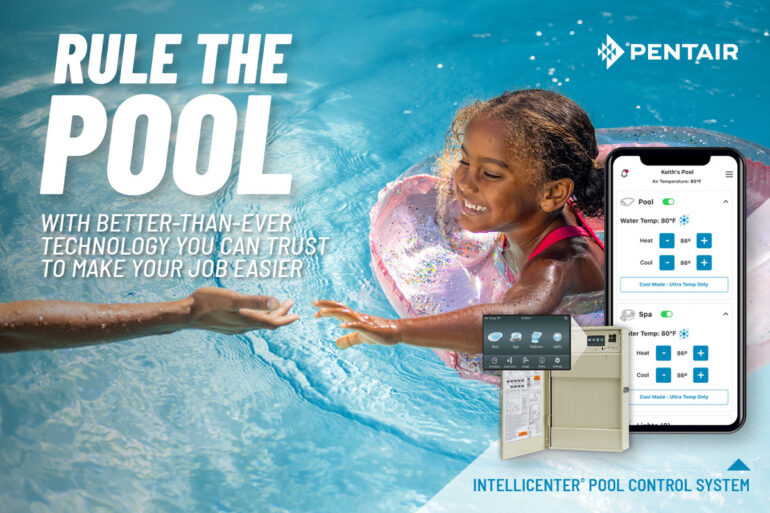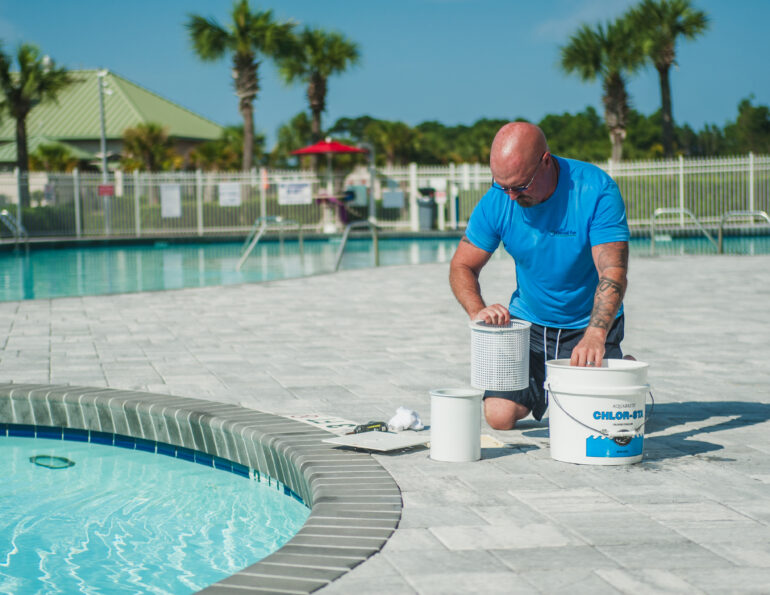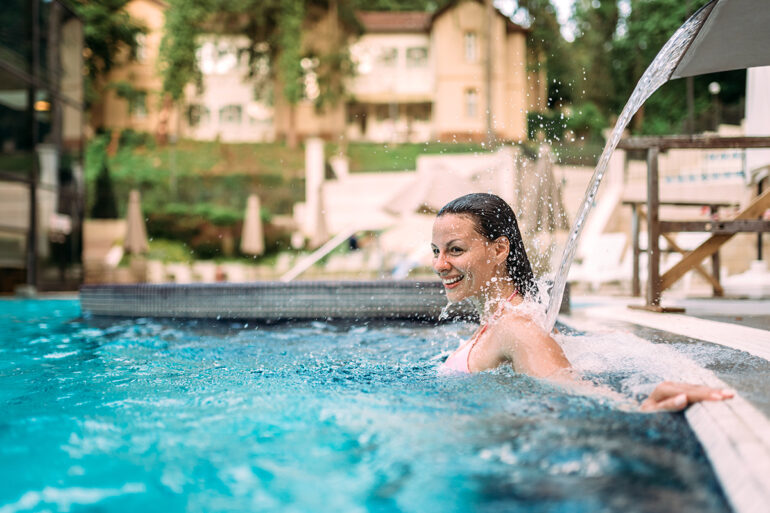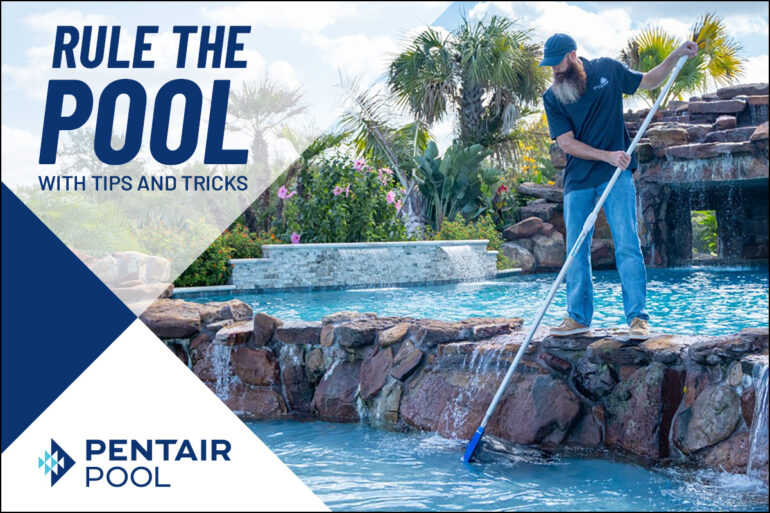Skipping the Drain
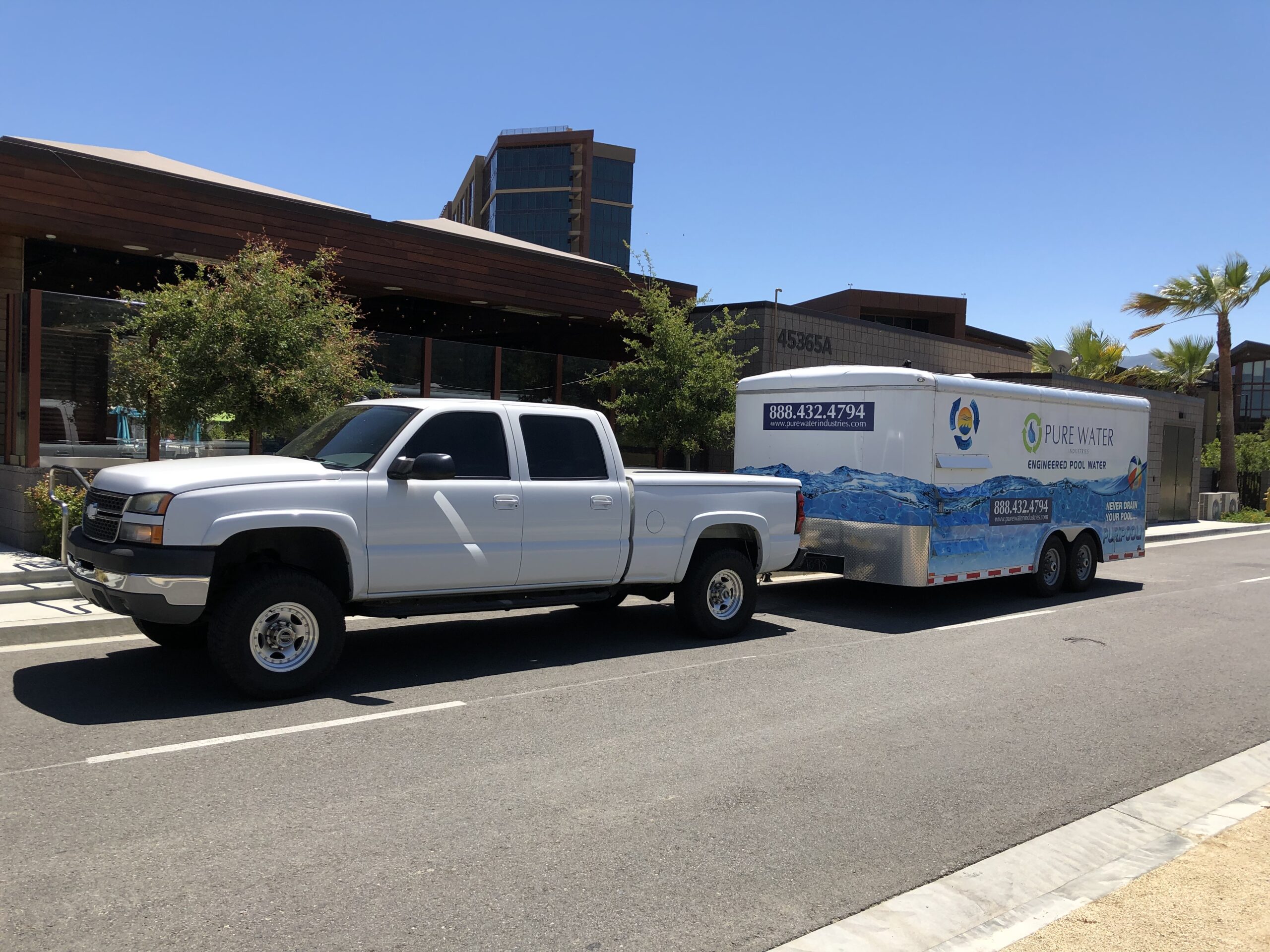
Bruce Wettstein says he’s always understood quality water. A pool builder since 1995, Wettstein recalls how he drained his own pool every other year, only to feel like he was being irresponsible with a valuable resource.
“I just watched 22,000 gallons of water go down the drain,” he says, “and then I’d buy another 22,000 gallons to fill it. I thought ‘This is stupid.’ ”
Aware of the concept of recycling pool water through reverse osmosis because of his friendship with Ken Scheer, who had a similar business in Arizona from 2006 to 2008, Wettstein commissioned his first reverse osmosis trailer in 2009. By 2011, Wettstein persuaded Scheer to become his partner in the business and Pure Water Industries was born. The reverse-osmosis technique, called the Puripool Process, conserves up to 85% of the existing water in each pool.
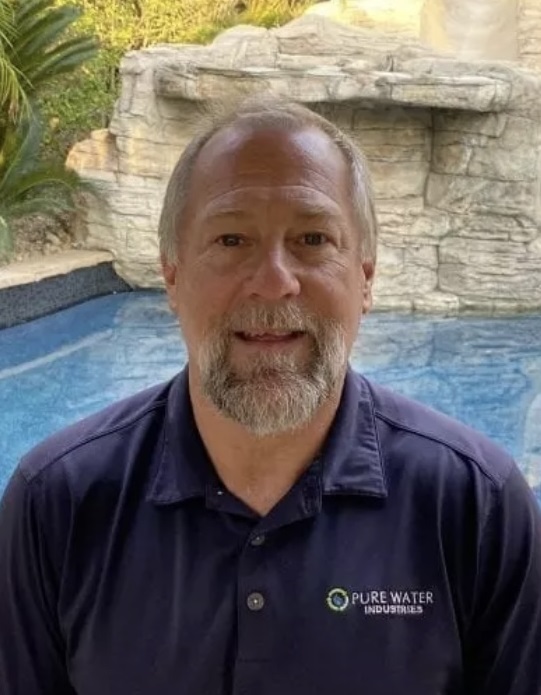
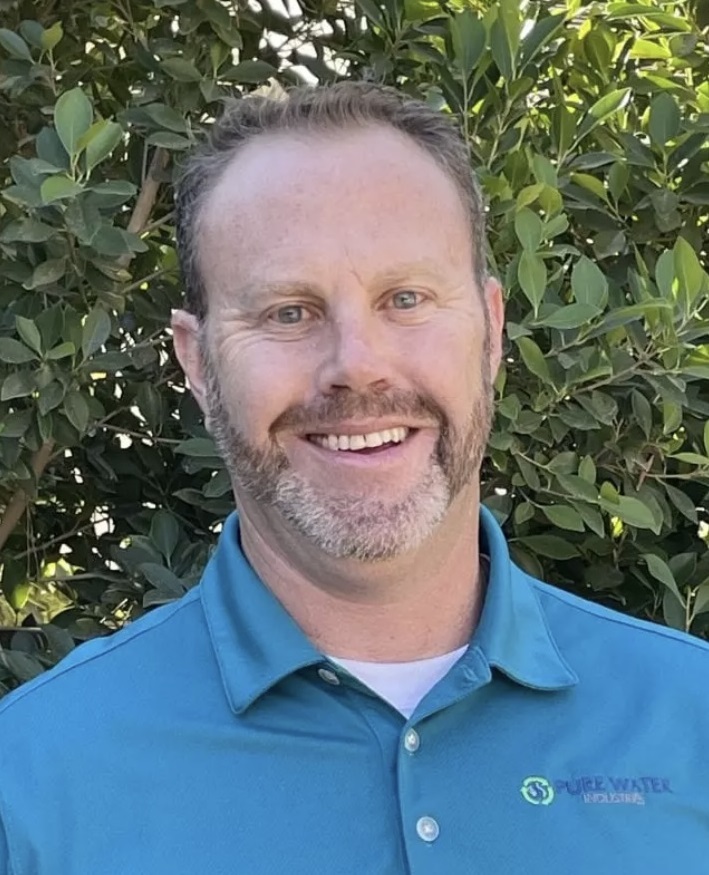
Steven Ward, owner of Ward’s Pool Service and Supply in Arizona, which has served the Phoenix metro and East Valley areas since 2002, says water conservation is a continually growing concern in his state. “With swimming pools requiring to be drained every two years due to high calcium, total dissolved solids and other hardness minerals,” he says, “I knew there had to be a better process for refreshing the water other than draining a pool.”
In 2014, Ward came across Pure Water Industries in a magazine article. After meeting with Wettstein and Scheer and experiencing how the company’s Puripool Process could safely and effectively remove total dissolved solids (TDS) from water without draining it, Ward formed Arizona Pool Water Recycling to offer this process to pool owners in Arizona.
“I originally emailed them a list of questions I had about their system as well as
their company,” Ward says. “I soon learned that Bruce and Ken knew what it means to provide a level of customer service second to none. The process of getting our trailer ordered, built, and delivered was super smooth! Years later, Bruce and Ken are more like friends!”
While Pure Water Industries received franchise requests from the start, that business model did not interest Wettstein and Scheer. “It’s a lot more money to get started [as a franchisee], and if we went that route, not only would we have to be in everybody’s business to keep track of how they ran things,” Scheer says, “but there was a barrier to entry for others financially.”
Instead, interested parties buy the reverse-osmosis trailer built by Pure Water Industries. The sale process can take 12 to 18 months because it is an investment, Scheer says, and it takes effort and time to get finances together and figure out the details, as the payment terms for each agreement are individualized and the trailer is made to order. Trailers range from $120,000 to $152,000, depending on the size ordered, and Scheer says these prices fluctuate often due to supply chain issues.
While the pair has no involvement in the businesses that buy a trailer, they are available to help their 30 current service providers — who are also listed on the Pure Water Industries website — even once the trailer is paid off. The company also has access to efficiency reports for each trailer, making it easier to troubleshoot any problems. As of now, its providers span California, Arizona, Nevada, Texas, Oklahoma and Utah.
Wettstein says pools using their system are first titrated using Taylor Technologies reagents, and a Myron L Meter for anything that can’t be determined by titration. This helps determine what problems the water has and an ideal reading.
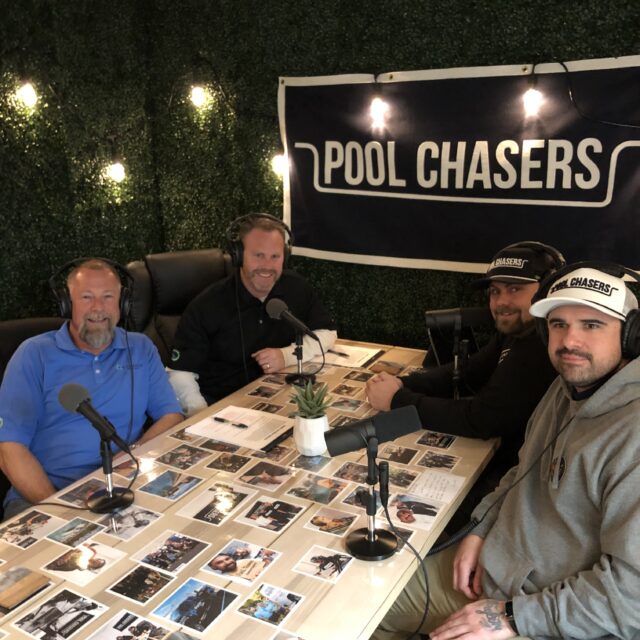
The pool equipment is then shut down, and the automated trailer is parked. The hose that feeds the pool water back into the trailer goes into the deepest end of the pool. A second hose goes into the shallow end to return the purified water, pushing the TDS to the deep end for processing. Another hose is hooked to the trailer to drain the concentrated mineral content removed from the water (which is disposed of at the sewer or storm drain, depending on location). A final hose is hooked to the customer’s hose bibb to top off the remaining 15% of the water.
The process takes eight to 12 hours, depending on the size of the pool. The constant status updates allow companies like Ward’s to add the trailers as a subsidiary of their pool business, something many of Pure Water Industries’ customers do, since they can drop them off in the morning and go work their service routes while the trailer recycles the water. The trailer will continually test the water until ideal levels are reached. Upon completion, it automatically shuts off and sends a message to the operator.
While most of its service providers are in the pool industry, Pure Water Industries has also made trailers for aluminum manufacturers, semiconductor companies and breweries. Wettstein says the trailers are also FEMA approved because they are self-contained units and can help create drinking water in disaster situations.
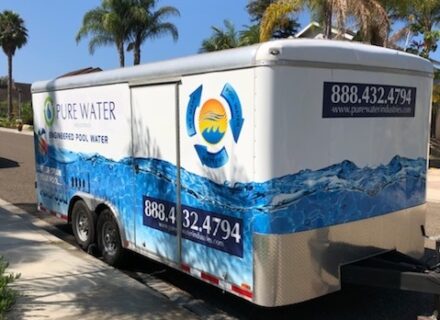
Since its inception, Scheer says Pure Water Industries has conserved 70 million gallons of water with its trailers — if not much more. “We could almost double that number because not only did we save the water that gets wasted if you drain it,” he says, “but then it’s another 70 million gallons you’d have to put back in the pools. If you add up all our service providers, it’s a huge impact.”
Wettstein emphasizes that Pure Water Industries isn’t a big company, just one that wants to make a big impact. “We have a passion for not only the industry, but also for what we’re trying to achieve for water conservation,” he says. “The more it gets out, the more people can embrace and understand that water is finite. We have water issues coast to coast that we want to do our part to address.”

